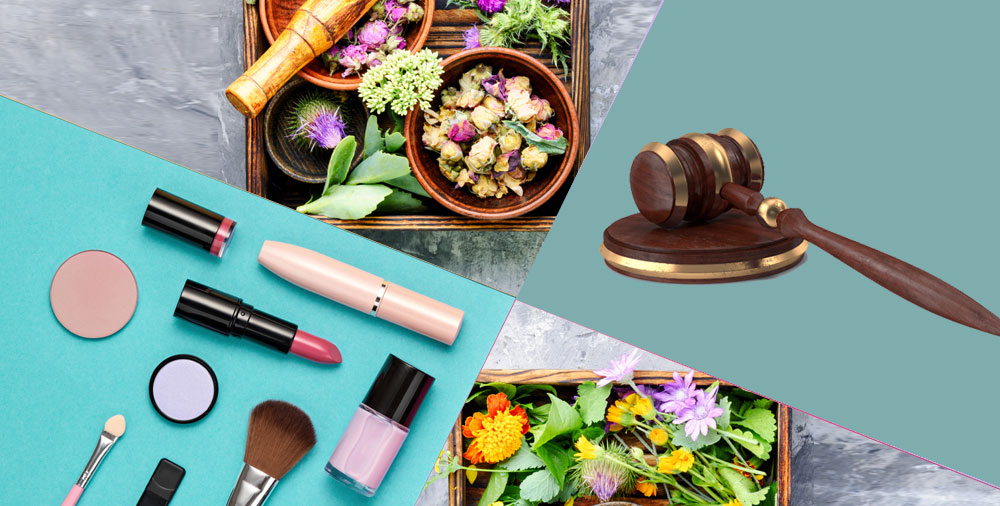The unsubstantiated claims made by cosmetic and AYUSH brands has become a grave concern with industry players demanding stricter action against the culprits to curb such malpractices

The Ministry of AYUSH has revealed that it has come across 804 misleading advertisements or claims of herbal or AYUSH products and services—the list also includes Ayurvedic medicines—during the period, April 2015 to January 2018.
This was mentioned by the Minister of State (IC) of the Ministry of AYUSH, Shree Shripad Yesso Naik while responding to a question about the rampant occurrence of misleading claims by manufacturers and brand owners. The data referred to by the ministry has been collected by the Advertising Standards Council of India (ASCI) and the Grievances Against Misleading Advertisements (GAMA). GAMA comes under and is maintained by the Department of Consumer Affairs.
Filling up the lacuna
Acknowledging that the Drugs & Cosmetics Act, 1940 and the rules under the same did not have any exclusive definition of herbal medicines, the minister clarified that a new category called ‘Phytopharmaceutical drugs’ had been created to cover drugs derived from herbal materials or medicinal plants. This new definition has been included under Rule 2(eb) of the Drugs and Cosmetics Rules, 1945 to regulate such drugs, he informed. The new classification is aimed at regulating such drugs made from the purified and standardized fraction. They come with minimum four bio-active or phytochemical compounds of an extract of a medicinal plant or its part, as defined under these rules.
Truth found in complaints
In January 2018, the Advertising Standards Council of India (ASCI) found that of the complaints it received 117 were meritorious, that is, the said advertisements contained misleading claims. In March, it found merit in another 191 complaints about advertisements being misleading. The Council thoroughly reviewed the advertisements published across print and television media about herbal/AYUSH products.
In April this year, the Council issued a ban against nearly a thousand misleading advertisements about herbal products (and their claimed remedial properties). The Ministry of AYUSH had tasked ASCI to monitor the Ayush advertisements appearing in print and TV media. The Council found 732 complaints between January 2017 and January 2018 as cases of misleading claims. During the past three years, states and union territories of Delhi, Maharashtra, Gujarat, Kerala, Karnataka and Chandigarh reported 573 cases of misleading advertisements.
Big brands in the fray
ASCI’s battle in the cosmetic products domain goes back to the year 2014 when it issued fresh guidelines for skin lightening products being sold in India. The Council came down heavily upon brands by attacking the notion of fair being a better complexion which forms as the premise for fairness products. The complaints about misleading advertisements against even the international giants including L’Oreal, Hindustan Unilever Limited, Procter & Gamble, and Marico Ltd were found by ASCI to be meritorious.
For example, in one of L’Oreal’s advertisements, the Bollywood actress Alia Bhatt advises her friends suffering from dark spots that those spots would disappear within a week of using a particular cream by Garnier. Similarly, the advertisement of Pure Derm Anti-Dandruff shampoo by HUL was found as unsubstantiated by the Council as it mentioned that the product would clear dandruff once and for all. Marico’s claim in its advertisement about its product, Livon Hair Serum being ‘the best’ was deemed as unsubstantiated by the Council. Another giant, P&G found to have released an advertisement containing an unsubstantiated claim that its brand, Pampers was the No. 1 choice of doctors.
Strong reactions from the industry
Terming the claims made by big brands as “bogus”, Cosmic International proprietor Murli Narayan says: “Misleading claims by manufacturers of cosmetic products is a serious issue. One of the tactics we observe is manufacturers get away by calling a product herbal when only a few percentages of the content is herbal, the rest is all chemical.” Stating that the consumer needs to be aware of the surreptitious advertising tactics of brands, he adds: “Consumers must be vigilant about what they are buying. The effects of some of the chemicals used in cosmetic products are not only contrary to the claims but also damaging to human health. For instance, some shampoos may contain cancerous sulphur.”
Stating that regulator has a big role to play in ensuring the right products are sold in the right manner, Ms Kajal Anand, MD, Debon Herbals says: “We need a strict enforcement of the existing regulations to ensure that consumer is protected. In the USA, for instance, a company cannot dare mess up with consumers as the consumer awareness level is very high. Even a small issue can attract heavy penalties.”
With ASCI and Ministry of AYUSH actively monitoring the tall claims made by cosmetic product brands, it may be seen as a good beginning. The battle for protecting the wider consumer interest may also require industry’s cooperation and greater investments in building consumer awareness.

